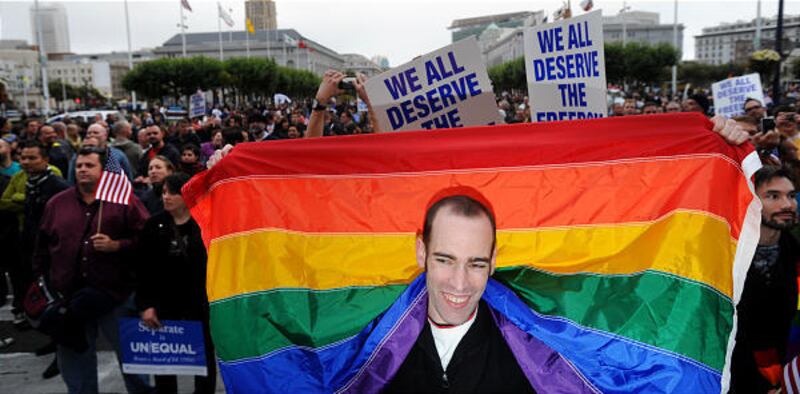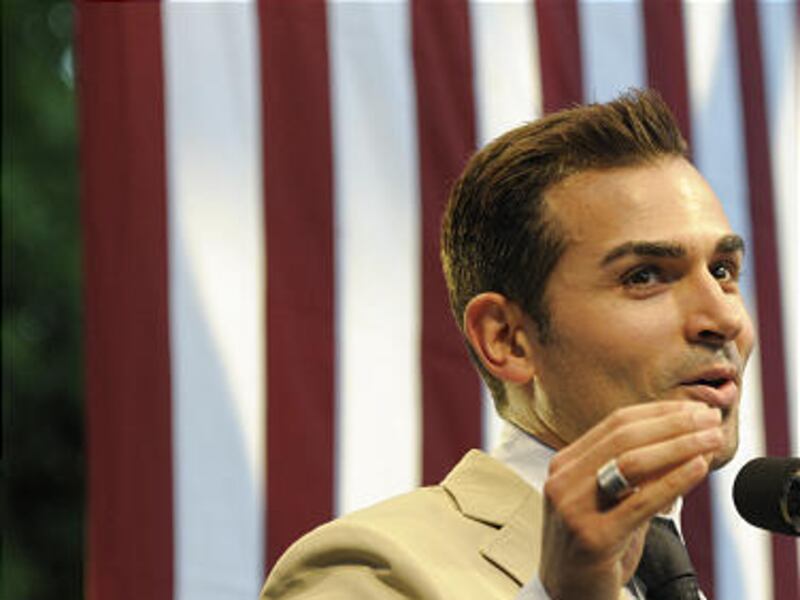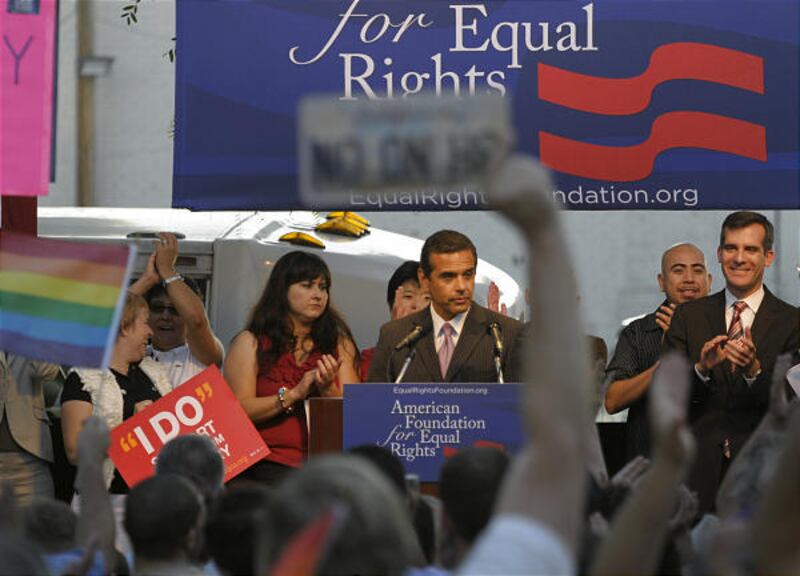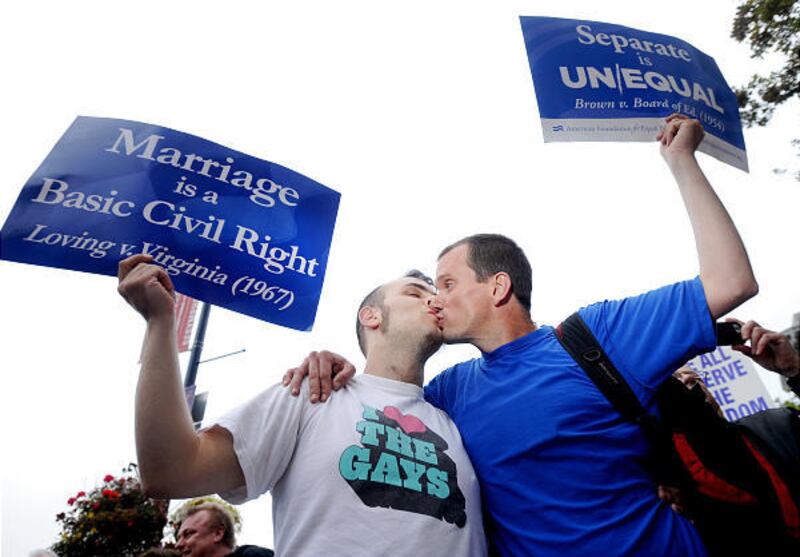SAN FRANCISCO — Supporters of California's gay-marriage ban filed an appeal of a federal judge's ruling that struck down the voter-approved law.
The appeal filed late Wednesday to the 9th U.S. Circuit Court of Appeals was expected, as lawyers on both sides of the legal battle repeatedly vowed to carry the fight to a higher court if they lost.
Earlier in the day, a federal judge in San Francisco overturned California's Proposition 8, which restricts a marriage to one man and one woman. U.S. District Judge Vaughn Walker ruled the law violates federal equal protections and due process laws.
The 9th Circuit court on Thursday set a Nov. 12 deadline for initial written arguments to be filed.
The outcome in the appeals court could force the U.S. Supreme Court to confront the question of whether gays have a constitutional right to wed.
"This ruling, if allowed to stand, threatens not only Prop. 8 in California, but the laws in 45 other states that define marriage as one man and one woman," said Brian Brown, president of the National Organization for Marriage, which helped fund the 2008 campaign that led to the ban's passage.
Currently, same-sex couples can legally wed only in Massachusetts, Iowa, Connecticut, Vermont, New Hampshire and Washington, D.C.
The appeal was filed by Protect Marriage, a coalition of religious and conservative groups that sponsored Proposition 8 and wound up defending it after California Gov. Arnold Schwarzenegger and Attorney General Jerry Brown refused.
Walker, meanwhile, said he would consider waiting for the 9th Circuit to render its decision before he makes his opinion final and requires the state to stop enforcing the ban. The judge ordered both sides to submit written arguments by today on the issue.
While other rulings on gay marriage have emphasized legal theory, Walker's 136-page decision leaned heavily on findings of fact based on the testimony he heard during a 13-day trial in January.
At least some legal analysts believe that Walker fashioned his order to force judges on the 9th U.S. Circuit Court of Appeals and the U.S. Supreme Court to confront the practical reality of gay unions, rather than treating them as a legal abstraction.
Some analysts also said the reliance on the trial testimony might help Walker's decision survive an appeals court's scrutiny because appellate judges typically give a trial judge's factual findings some deference.
Most legal analysts expect the case ultimately will be resolved by the U.S. Supreme Court. Four conservative justices on the Supreme Court are widely believed to be unlikely to support a decision recognizing a constitutional right of gays to marry.
Four others, including the newly confirmed Justice Elena Kagan, seem more likely to agree with Walker that the Constitution does not allow states to treat gay couples differently from heterosexual ones, analysts said.
The deciding vote, most analysts agree, likely would belong to Justice Anthony M. Kennedy. In recent years, Kennedy has been the author of two major decisions striking down laws seen as discriminating against gays.
In 2003, he wrote the opinion invalidating a Texas law that made gay sex acts a crime, and in 2007, he struck down a Colorado ballot initiative that prohibited local governments from passing anti-discrimination ordinances based on sexual orientation.
California voters passed Proposition 8 five months after the state Supreme Court legalized same-sex unions and an estimated 18,000 same-sex couples already had tied the knot.
Joe Briggs, 32, an actor who attended a West Hollywood gathering,said he was thrilled to hear about the ruling but was curbing his enthusiasm because of the legal fight still ahead. "It's a long process. Last time we were allowed to marry for like a day and then they took it away," said Briggs.
Walker's decision came in a lawsuit filed by two same-sex couples and the city of San Francisco that sought to invalidate Proposition 8 under the same constitutional principles that led to bans on interracial marriage being overturned.
The 13-day trial was the first in a federal court to examine if the U.S. Constitution prevents states from denying gays the right to wed.
In declaring Proposition 8 unconstitutional, Walker accepted every argument advanced by the plaintiffs and methodically rejected every claim made by the defense. Preventing gays from marrying does nothing to strengthen heterosexual unions or serve any purpose that justifies its discriminatory effect, but harms children with same-sex parents and "the state's interest in equality," he wrote.
Describing the defense case as "a rather limited factual presentation," he also said its proponents offered little evidence that they were motivated by anything other than animus toward gays — beginning with their campaign to pass the ban, which included claims of wanting to protect children from learning about same-sex marriage in school.
"Proposition 8 played on the fear that exposure to homosexuality would turn children into homosexuals and that parents should dread having children who are not heterosexual," Walker wrote.
Contributing: Juliana Barbassa, Raquel Maria Dillon and Jennifer Peltz, Associated Press; Maura Dolan and Carol J. Williams, Los Angeles Times







